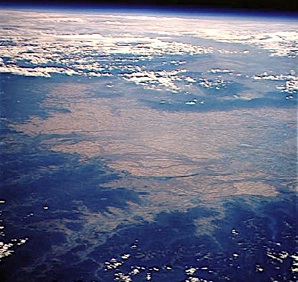Odessa solutions
Conclusion
Odessa solutions
Conclusion

When visiting the Odessa Subarea, particularly the eastern sector, it is readily apparent that the importation and delivery of water will be impossible without extraordinary expense. Not only are there no reliable local surface waters, but there is no infrastructure to deliver water to farms. Construction of reservoirs, canals, pump stations, pipelines and laterals would be exceptionally expensive – far beyond what is affordable to local farms or even within the range of reasonable subsidy by state or federal government.
Photo: Odessa Subarea.
But no one wants to accept the reality stated above. The Columbia Basin Development League, is hell-bent on development of the “second-half” of the CBP, regardless of cost. A vocal minority of small Odessa farms claim absolute entitlement to publicly subsidized water. There is little candor in the public discussions about the costs of importing water, and no acknowledgment that mining the Odessa Aquifer has caused exactly the consequences that were anticipated 35 years ago. No politician is willing to admit that it will simply cost too much to bring water in from the Columbia River.
Photot: Irrigation equipment, Odessa Subarea.
Some western sector Odessa farms may receive replacement water transferred from conservation achieved on Columbia Basin Project lands. Some economic buy-outs may be justifiable under other programs. But, drawdown of the Lake Roosevelt reservoir to send surface waters to Odessa will require extraordinary levels of mitigation that are well beyond the public’s willingness to pay.
Columbia River plateau, from space. (NASA image (STS028-73-42) Image Science & Analysis Laboratory)
Time ran out for the Odessa Subarea long ago, when farmers chose to ignore the consequences of overpumping and the use of improperly constructed wells. The state of Washington should have stepped in to protect the resource and prevent proliferation of unsustainable irrigation. Local politicians should have sought solutions rather than hand-wringing and obstruction. History, however, is a frequent casualty of water politics and solutions for the Odessa have become increasingly limited by time.




Columbia Institute for Water Policy






